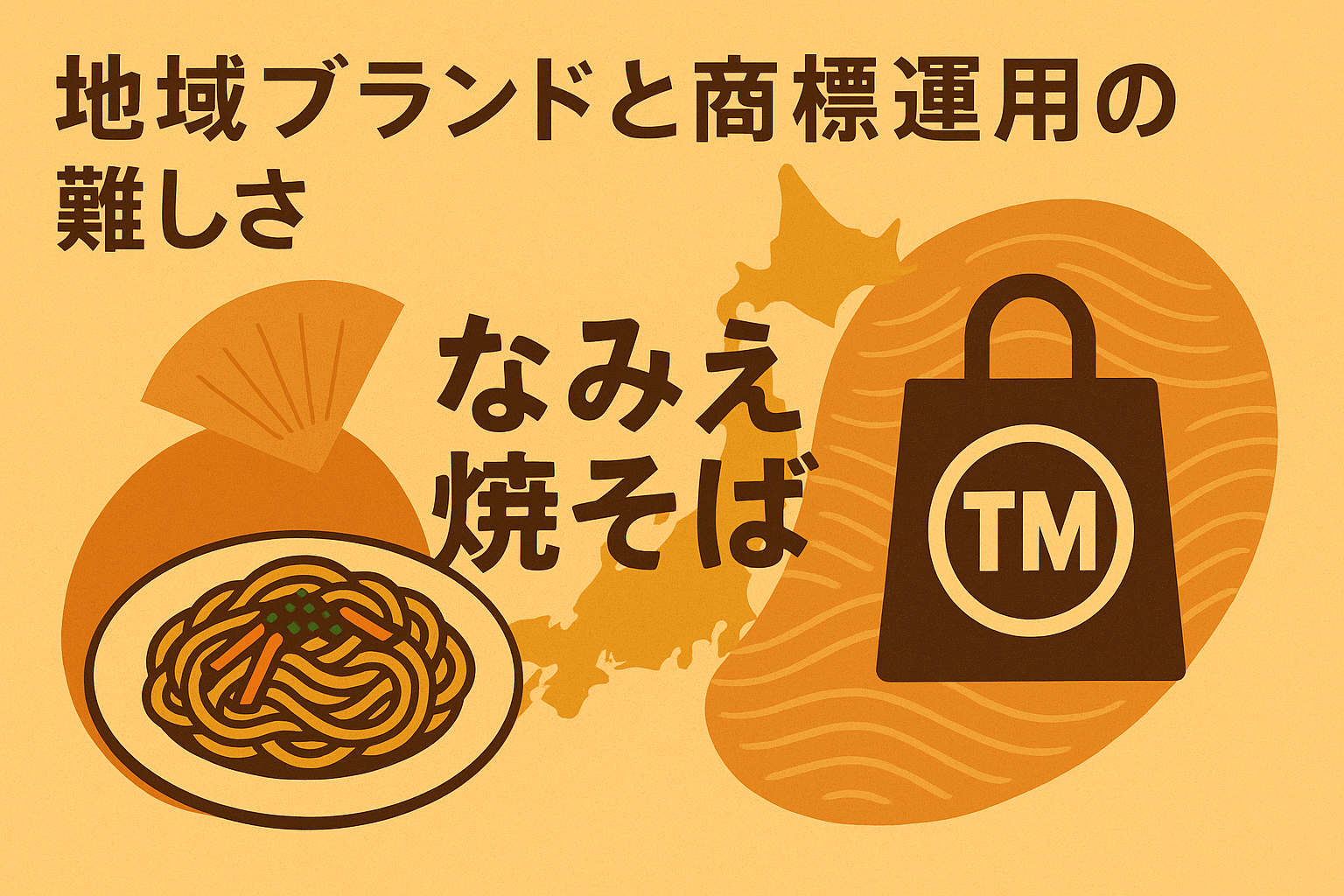A recent news report revealed that the Namie Town Chamber of Commerce has withdrawn its policy of collecting royalties from restaurants using the name “Namie Yakisoba,” a local specialty of Namie Town in Fukushima Prefecture. This issue goes far beyond a simple “use of name” dispute. It highlights deeper, intertwined problems involving the management of regional brands, the practical limits of trademark rights, and a breakdown in communication with local businesses.
This article reviews the background and timeline of the controversy and examines what lessons can be drawn from it.
Why Did the Chamber of Commerce Begin Charging Royalties?
“Namie Yakisoba” is widely known across Japan as a successful example of regional revitalization. Its popularity surged after it won the B-1 Grand Prix in 2013, and it became a symbol of Namie’s recovery after the 2011 disaster.
The Chamber of Commerce registered the name as a trademark in 2017 and, in October this year, began collecting royalties as follows:
- Registration fee: ¥3,000 per business
- Usage fee: 2.5% of sales (targeting around 20 businesses, including restaurants)
According to the Chamber, the purpose of the fees was to secure funds for promotional activities. While the intent to strengthen the regional brand is understandable, several serious issues emerged.
The Real Problems: Misunderstanding the Scope of the Trademark and Insufficient Explanation
The immediate reason for withdrawing the policy was a lawyer’s clarification that trademark rights do not apply to food items served inside restaurants.
This is a basic principle of trademark law, yet one that is often misunderstood.
- Trademark rights apply to “indications of goods or services.”
- Menu names inside restaurants generally do not qualify as such “service indications.”
- In contrast, packaged goods sold at roadside stations or retail shops are considered “products” and fall under trademark protection.
In short, simply listing “Namie Yakisoba” on a restaurant menu does not constitute trademark infringement.
Compounding the problem, the Chamber of Commerce began collecting fees without providing sufficient prior explanation, sparking backlash among local businesses.
“Suginoya” and the Erosion of Trust
One of the most symbolic reactions came from Suginoya, a long-established restaurant that has served Namie Yakisoba for many years.
- It continued serving the dish even after evacuating following the nuclear accident, supporting the local brand for more than a decade.
- After the sudden royalty demand, the restaurant changed the name on its menu to “Suginoya Yakisoba.”
- The Chamber later apologized, admitting its explanation was insufficient, and declared the issue resolved.
However, the restaurant owner has stated that he will no longer use the name “Namie Yakisoba” at all, indicating that the trust behind the brand relationship has been deeply damaged.
For Regional Brands, Collaboration Matters More Than Enforcement
This case illustrates the inherent difficulty of trademark management in regional branding.
- Trademark registration itself is appropriate.
- The issue lies in how the rights are exercised.
While obtaining trademarks to protect a regional brand is common practice, exercising those rights too aggressively can alienate the very businesses that sustain the brand.
- Enforcement-first approaches create conflict.
- Regional brands grow through collective effort.
- Special consideration should be given to businesses that have supported the brand’s history.
In this sense, the Chamber’s decision to apologize and halt royalty collection from restaurants was reasonable.
Lessons for Other Local Specialties Across Japan
The Namie Yakisoba incident offers valuable lessons for regional brands nationwide.
- Understand the purpose and limits of trademarks.
Misuse or overextension of trademark rights can divide local communities.
- Build consensus with businesses when implementing trademark rules.
Clear explanations of background, purpose, and fund usage are essential.
- Brands are strengthened by shared value, not by strict rights management.
A collaborative approach ultimately enhances tourism and market expansion.
Rebuilding the Brand After the Turmoil
This controversy has likely provided important lessons for both the Namie Town Chamber of Commerce and local businesses.
What matters now is how the community rebuilds the “Namie Yakisoba” brand moving forward.
I hope that the Chamber and local businesses can find common ground, share the value of the brand across the community, and move toward rebuilding it in a healthier and more sustainable way. Creating an environment where long-time contributors like Suginoya can continue sharing the appeal of the local cuisine will be essential to true regional revitalization.

